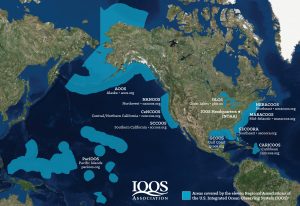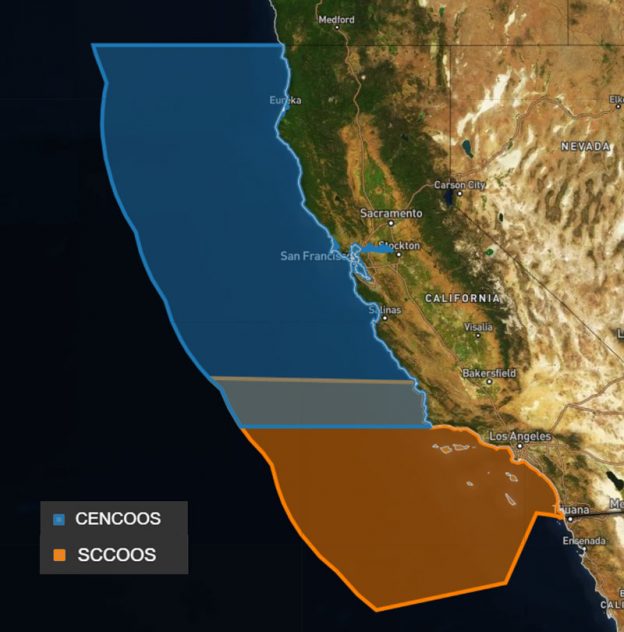CeNCOOS is a US Government-accredited, regional source for high-quality data, integrated information, and diverse expertise to inform wise and sustainable use of the ocean off Central and Northern California. The CeNCOOS collaborative engages numerous investigators and technical experts, students, and institutions. Our systems and capabilities are evolving to provide real-time and forecasted information on harmful algal blooms, to advance integrated assessment tools for Marine Protected Areas (MPAs), and to include animal telemetry and other emerging technologies. Our data catalog continues to grow, facilitating access to over 1,000 observational and model data sets for the region, including a growing set of biogeochemical and biological data. Users of CeNCOOS data and information products include scientists, resource managers, decision-makers, students, and engaged citizens who participate in the continual improvement of the system to best meet society’s needs.
Our partners include our neighboring regional observing associations, especially the Southern California Coastal Ocean Observing System (SCCOOS), as well as federal and state agencies supporting coastal management, academic and nongovernmental organizations and the ocean-focused business community. We are housed on the campus of the Monterey Bay Aquarium Research Institute.
Our Mission
Translating data into action through the production, curation, and delivery of high-quality ocean information.
Our Ocean Vision
A healthy and prosperous California coastal ocean powered by information solutions.
Ocean Observing in the U.S.
CeNCOOS is part of a national framework of integrated observing systems covering all U.S. coastal areas and the Great Lakes. This national framework is called the U.S. Integrated Ocean Observing System (IOOS) within the National Oceanic and Atmospheric Administration (NOAA). IOOS is a Regional Alliance of the Global Ocean Observing System (GOOS), which coordinates distributed observing systems globally to serve users across climate, operational services, and ocean health, with an increasing focus on coastal areas and regional seas.
We are a certified Regional Information Coordination Entity — a non-federal observing organization certified as meeting federal standards for data gathering and management. This certification means that our data has the full backing of the IOOS and NOAA.

Funding
The core funding for CeNCOOS comes as a series of five-year Regional Coastal Ocean Observing System (RCOOS) grants administered by IOOS. Our strategy presented here informs the framing and delivery for the award covering the period June 2021 to May 2026. This core funding supports basic administration and implementation of our regional observing systems. External support for CeNCOOS has come from programs including the IOOS Ocean Technology Transition, Marine Biodiversity Observing Network (MBON), the Coastal Ocean Modeling Testbed (COMT) efforts, the NASA Ecological Forecasting Program, and the National Oceanographic Partnership Program (NOPP). We also regularly seek funding through competitive programs such as those sponsored by the California Ocean Protection Council (OPC) and California Sea Grant. Several philanthropic organizations have strategic interests that align with ours, including the provision of actionable information on various indicators for managed marine spaces, environmental stewardship, and advancing technical capability to provide additional opportunity for maximizing regional partnerships and optimizing the system.
CeNCOOS seeks funding to meet our strategic goals and realize our vision and mission. CeNCOOS currently operates at a funding level that severely constrains our ability to recapitalize existing assets, grow observing capability for biogeochemistry, biology, and ecosystem variables, and provide the high-priority information the region needs. All of our operations are heavily leveraged and would not be possible without contributions from our many partners including NOAA Global Ocean Monitoring Program, the West Coast Marine laboratories (University of California and California State University systems), the Alliance for Coastal Technologies (ACT) among many others. This funding shortfall requires us to grow our funding portfolio to meet our strategic goals and those of our federal, tribal, state and local partners.


